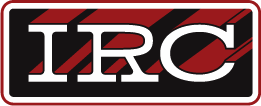Small Businesses: the Driving Force of Our Economy
September 23, 2021

Purpose of a Mixed Economy
In the United States of America there exists a careful balance allowing freedom of economic advancement and capital use along with government controlled sectors such as the department of education, court systems, hospitals, postal service and road systems (Investopedia). In theory this is to ensure that proper systems are in place to create a symbiotic environment between the government and the people in order to establish a thriving economy, assuming the government is for the people. Fostering an environment for small businesses to thrive is essential to keeping this balance.
Small businesses are defined by the Small Business Administration (SBA) as a privately owned business with fewer than 500 employees.
By this definition there are 30.2 million small businesses in the United States (Chamber of Commerce). According to the Chamber of Commerce, this makes up 99% of businesses in the U.S. and accounts for 47.5% of the work force (Oberlo). However, if you look at businesses with fewer than 100 employees they make up 98.2% of small businesses in America, which is still quite significant. Overall, small businesses provide 58.9 million jobs to people in the United States (Oberlo) and creates about 2 million new jobs each year (Chamber of Commerce).
What are the Benefits of Small Businesses?
Small businesses are the driving force in our mixed economy structure. They serve to develop not only our economic, but our socioeconomic standing as well by creating jobs, spurring innovation, along with increasing opportunity for minorities (Exploring Business). Therefore, small businesses promote the American dream by establishing opportunity for people to achieve financial stability and independence. While big businesses and investors promote larger amounts of growth in a particular area, it is the balance of each that creates a booming economy (Investopedia).
Driving Factors for Entrepreneurs to Start Their Own Small Business
Now, in the era of COVID, there has been a major shift in the workforce and many are choosing to launch their own start-up business. For many this has been dictated by their circumstances. Schedules, childcare availability, financial standing have all been disrupted as we leave behind the old normal and now forge ahead into the next normal. Others are looking to become their own boss and to have more control over such decisions. For instance, whether or not to receive the vaccination being administered under emergency circumstances, even though currently it still has unknown long-term side effects. With hospitals and other private businesses pressuring their employees to do so, we may see an even larger surge of small businesses registering with the Small Business Administration.
The Surge of Applicants for New Start-Ups
In 2019, 3.5 million small business were started, this jumped to 4.35 million in 2020, with an average of 1.3 million new businesses starting up per quarter. So far we have seen 1.37 small businesses launched in Q1 of 2021 and 1.44 in Q2 (Oberlo). The decline in numbers reported for the month of August has led the Small Business Administration to believe this volume of new applications will begin to regress and does not think it very likely to continue at such high volumes as reported over the past 6 quarters from Q1 of 2020 to Q2 of 2021.
As a result of the uncertainty caused by the stay at home mandate and the shutting down of business sectors deemed non-essential, it provided people the time to finally put together the game plan for their own start up.
Owning one’s own business is not easy, and yet independent business owners say they have a a higher amount of job satisfaction which is likely due to the flexibility allowed in ones schedule along with the security it provides in these unprecedented times (Oberlo).
Owning and running a small business is challenging and not all small businesses are able to make it past the first 3-5 years. So when you think about where you will shop, eat, or go for a fun evening out, think of how you can support a small business in your area.
If you are interested in starting your own small business there is a guide on the U.S. government page for Small Business Administration to help people plan and detail out which steps to take in order to start your own small business. You can also reach out to the small business center at UTSA for assistance.
Sources
Exploring Business (Online Textbook)

